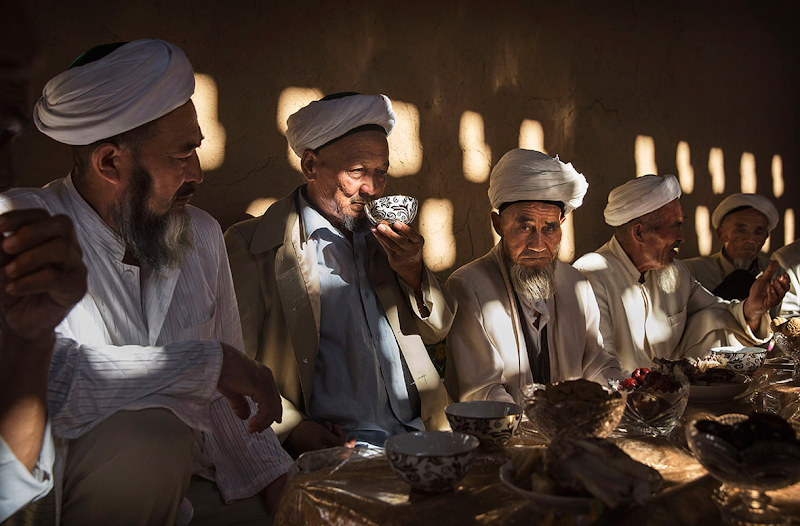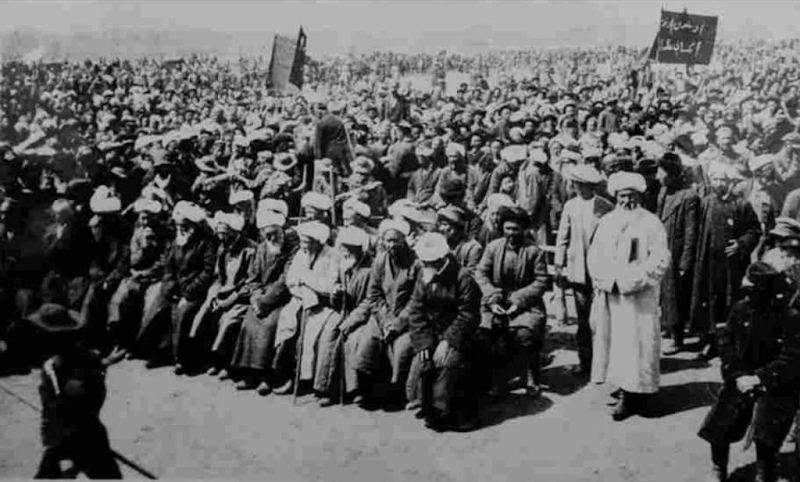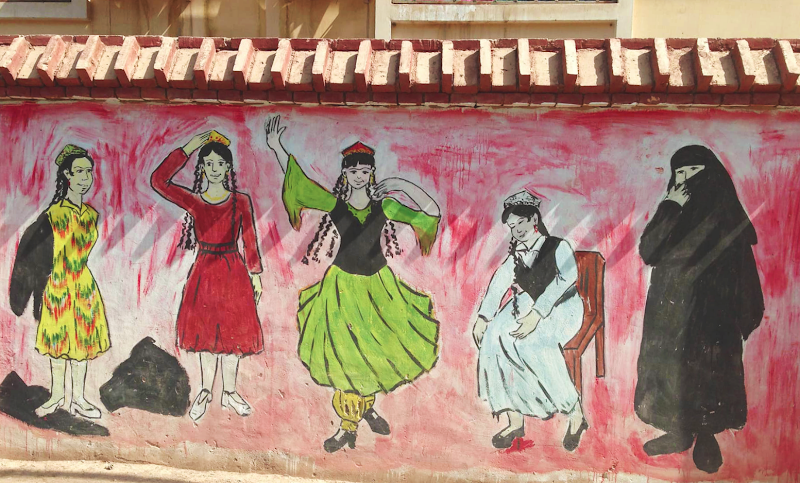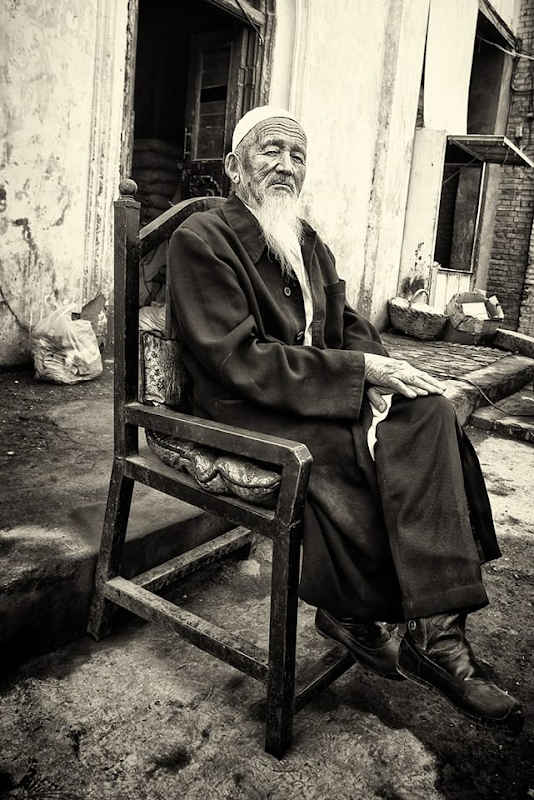The Uyghurs: A Heritage Under Threat

Present in Turkestan for over a thousand years and Islamized during the early Middle Ages, the Uyghurs have been under the occupation of communist China for several generations. Subjected to an unprecedented system of surveillance and repression, the Uyghurs are no longer able (or barely able to) practice their religion. Today, more than a million are reportedly interned in so-called “re-education” camps.
Focus - History of the Uyghurs
The Uyghurs are a Turkic Muslim people of Mongolian descent who settled in the region of East Turkestan, now colonized by China. The first recognized Uyghur state in Central Asia dates back to the time of the famous Battle of Talas in 133 AH (751 CE), which saw Muslims and Chinese forces clash. Largely unaffected by this neighboring conflict, the Uyghurs ruled over a powerful and efficient khanate. At the time, they had not yet embraced Islam; instead, they converted en masse to Manichaeism.
After suffering defeat in battle against the Kyrgyz, the Uyghurs migrated in the mid-9th century CE to central regions that would later become part of Turkestan. As they mingled with local Indo-European populations, they became exposed to Buddhism and Nestorian Christianity, with some even becoming prominent religious figures.
When the Uyghurs pledged allegiance to Genghis Khan in 605 AH (1209 CE), Islam gradually spread among them through their interactions with the Qarakhanid Turks. During this period, many converted to Islam, particularly under the influence of Naqshbandi Sufi preachers.
In the 16th century CE, the Uyghurs reasserted their presence on the international stage by rallying behind the influential religious Makhdumzada Khwajas family, who were regarded as descendants of the Prophet ﷺ. This family played a crucial role in giving the Uyghurs a significant political existence. However, their independence was short-lived. Eventually, the Manchu Qing dynasty of China sought to permanently conquer Uyghur territory in the mid-18th century CE. Was this conquest truly permanent? Not exactly. The Manchu occupation lasted 103 years, until 1278 AH (1862 CE). Over the course of a century, the Chinese faced nearly forty Uyghur uprisings. The last of these uprisings succeeded in expelling Chinese settlers and re-establishing an independent Muslim kingdom—a kingdom officially recognized by the Russians, Ottomans, and British.
However, fearing Russian expansion into the region, the British provided financial support to the Manchus to reclaim Turkestan. By 1301 AH (1884 CE), the Uyghurs had once again fallen under Chinese control. Regular uprisings followed, particularly after the establishment of the Republic of China.
The Uyghurs fought until they successfully founded the Islamic Republic of East Turkestan shortly before World War II. Governed by Sharia law, this Uyghur state lasted for several years under the leadership of Emir Mehmet Emin Bughra. In their struggle against Chinese oppression, the Uyghurs were occasionally supported by the Hui Muslims, Chinese Muslims who were tolerated by the regime. However, after facing Soviet intervention, the Uyghurs were once again subdued. They briefly regained autonomy during World War II, but by 1368 AH (1949 CE), they were definitively conquered by communist China—until today.

A Region Targeted for “Pacification”
Rich in minerals, oil, gas, coal, and uranium, East Turkestan has been a top priority for China. To ensure dominance over the region, the communist regime has engaged in widespread repression, including the arrest of imams, extrajudicial killings of activists, and violent crackdowns on Uyghur demonstrations. For example, in 1417 AH (February 1997 CE), security forces opened fire on a crowd demanding the release of detained imams, resulting in 170 deaths and over 5,000 arrests. Seven detainees were publicly executed with a bullet to the head, and their bodies were displayed in the streets as a warning. The scale of these crackdowns is staggering. A year earlier, 10,000 men and women were arrested; some were executed, while others were sentenced to life imprisonment.
Post War on Terror
After the 9/11 attacks in 2001, Islamophobic measures escalated: Uyghur men were forced to shave their beards, anti-hijab campaigns were launched, Friday sermons were censored, halal meat was banned, and fasting during Ramadan was prohibited. In response, some Uyghur activists formed underground resistance cells, occasionally resorting to violent actions such as bombings in Beijing and East Turkestan. Some Uyghurs even joined resistance groups in Countries of the Sham and Afghanistan, known for being fearless fighters. Today, over 10 million Uyghurs still live under Chinese occupation in East Turkestan. They remain one of the most oppressed and forgotten Muslim communities in the world.

Ramadan Ban
For years now, China has banned fasting during Ramadan as part of broader restrictions on religious practice among Muslims in East Turkestan. Under the guise of "stamping out religious extremism," Chinese authorities have implemented a systematic crackdown on all Islamic rituals, particularly those linked to Ramadan.
Uyghurs are interrogated, monitored, and punished for attempting to observe this sacred month:
- Forced food consumption: Students, government employees, and business owners are forced to eat and drink during fasting hours.
- Mass surveillance: Cameras and informants are used to monitor private homes to detect signs of fasting.
- Interrogations and arrests: Uyghurs suspected of fasting risk imprisonment in "re-education" camps.
- Deletion of Taraweeh and Suhur: Uyghur families resort to eating Suhur in bathrooms to avoid detection.
Former detainees, such as Zumrat Dawut, have testified to the brutal treatment of Uyghurs caught fasting. The Chinese regime continues to justify these policies under the pretext of "counter-extremism measures," despite global condemnation.
Never forgotten
A thought for the millions of Uyghurs who are being persecuted, tortured, and imprisoned simply for being Muslim:
And never think that Allah is unaware of what the wrongdoers do. He only delays them for a Day when eyes will stare in horror.
(Qur'an, Ibrahim, 14:42)

References
Books & Blog Sources:
Kilânî, NA (2021). The History of the Uyghurs (Layâli Turkestan). Al Bayyinah.
Renaud, K. (2020). Sarrazins (Issue No. 5). Sarrazins.
Web Sources:
DOAM (Documenting Oppression Against Muslims). (nd). Uyghur Oppression and Human Rights Violations. https://doamuslims.org .
Council on Foreign Relations. (nd). China's Repression of Uyghurs in Xinjiang. https://www.cfr.org/backgrounder/china-xinjiang-uyghurs-muslims-repression-genocide-human-rights
Coda Story. (2019). Decoding China's claims about Uyghur identity. https://www.codastory.com/rewriting-history/decoding-chinas-claims-uyghur-identity/ Campaign for Uyghurs. (nd). The Current Situation. https://campaignforuyghurs.org/the-current-situation/

